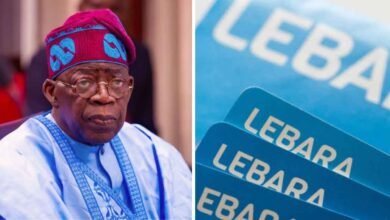
- NCC builds trust with media through transparency
- Glo ordered to split Chairman and CEO roles
- Globacom slashes international call rates
- MTN South Africa completes biometric ID rollout
- AI emerges as telecom’s next growth frontier
NCC Opens Up to the Media: Building Trust Through Transparency
The Nigerian Communications Commission (NCC) has made another strategic push to deepen transparency and strengthen ties with the media. Over a two-day engagement in Lagos, editors and correspondents across leading media houses sat down with the Commission’s leadership to better understand its regulatory role and ongoing efforts to grow the telecoms sector.
Executive Vice Chairman, Dr. Aminu Maida, used the occasion to outline the Commission’s priorities: addressing consumer complaints such as poor service quality, unexplained data depletion, and failed top-up transactions. He also raised the need to safeguard Critical National Information Infrastructure, stressing that protecting Nigeria’s digital backbone is a collective responsibility that requires vigilance from both regulators and citizens.
Dr. Maida announced that the Commission will soon unveil new initiatives designed to attract investment, improve service delivery, and empower consumers with better information to make smart choices. By partnering more closely with the media, the NCC hopes to keep Nigerians better informed and engaged while reinforcing the central role of telecoms in driving economic growth.
Pioneering Inclusion: NCC Workshop for Persons with Disabilities
In Abuja, the NCC earned high praise for hosting a groundbreaking sensitization workshop on digital citizenship for persons with disabilities. Themed “Empowering All – Advancing Digital Citizenship and Inclusion,” the event highlighted the Commission’s commitment to bridging the digital divide and creating equal opportunities for all citizens.
The workshop drew policymakers, ICT professionals, civil society groups, and individuals with disabilities, offering a rare platform to discuss how technology can enable independent living, employment, education, and civic participation. Representing the Executive Secretary of the National Commission for Persons with Disabilities, Mr. Lawrence Idemudia commended the NCC for taking the lead in championing inclusion. He urged stakeholders to continue collaborating so that digital technologies remain tools of empowerment rather than barriers.
Speakers emphasized that global and national commitments to accessibility must translate into practical solutions—whether in digital literacy, assistive technologies, or inclusive policy frameworks. By making digital spaces more accessible, Nigeria can unlock the untapped contributions of persons with disabilities to its economy and society.
A Regulatory Turning Point: Glo Ordered to Split Chairman and CEO Roles
One of the week’s most talked-about developments is the NCC’s directive to telecom giant Globacom to separate the roles of Chairman and Chief Executive Officer within 24 months. The move, part of new corporate governance rules released on August 7, 2025, is aimed at strengthening accountability and curbing potential conflicts of interest within the industry.
The new framework requires telecom boards to have at least five members, including a non-executive chairman, a distinct Managing Director/CEO, and a majority of non-executive directors. One-third of the directors must be independent, and at least two must possess strong ICT or cybersecurity expertise. Under the new rules, no chairman is permitted to simultaneously act as CEO.
Globacom, founded by billionaire Mike Adenuga, is the only major operator still combining both roles. In 2024, the company briefly appointed Ahmad Farroukh as CEO, but he resigned after two months citing disagreements over decision-making powers. Now, with regulators tightening oversight, Glo—and indeed all operators—must adapt or risk sanctions. This reform mirrors governance practices in Nigeria’s banking sector and signals a new era of corporate discipline in telecoms.
Globacom Slashes International Call Rates
In a consumer-friendly move, Globacom has cut its International Direct Dialling (IDD) rates to more than 15 countries, making it significantly cheaper for Nigerians to connect with friends, family, and business partners abroad.
Effective from August 10, calls to the United States have dropped from ₦35 to ₦30 per minute, the UK from ₦400 to ₦350, and India from ₦45 to ₦40. Rates to China, Saudi Arabia, Cameroon, and several African neighbors have also seen sharp reductions, with calls to Ghana now priced at ₦500 per minute and Niger Republic at ₦750.
The company is also rolling out new IDD bundles to offer even more value to frequent international callers. Glo says the move reaffirms its commitment to affordability and positions it as the go-to network for Nigerians who need reliable and cost-effective international communication.
MTN South Africa Rolls Out Biometric IDs Nationwide
Across the continent, MTN South Africa has made history by completing the rollout of biometric digital identification across all its retail stores. Customers can now use fingerprint and facial recognition for real-time verification, making onboarding faster and tackling SIM swap fraud—a growing challenge in the sector.
Following a six-month pilot in 20 percent of its outlets, the biometric system showed impressive results: quicker service activations, fewer errors, and stronger fraud prevention. MTN executives describe the rollout as a “customer-first innovation” that simplifies processes while tightening security.
The development comes at a time when South African regulators are considering making biometric verification mandatory for SIM card registration. By taking the lead, MTN positions itself ahead of regulatory requirements while setting new standards for telecoms security in Africa.
AI: Telecom’s Next Growth Frontier
Finally, the global telecoms industry is bracing for a technological revolution powered by artificial intelligence. A new DataM Intelligence report values the AI in telecoms market at US$2.63 billion in 2024—and projects it to skyrocket to US$35.69 billion by 2032, an annual growth rate of nearly 39 percent.
Telecom operators worldwide are already deploying AI to improve network optimization, detect faults before they happen, personalize customer experiences, and handle the exploding demand for data-driven services. The report makes it clear: companies that invest in AI will gain a decisive competitive edge, while those that lag risk being left behind.
For Nigeria and other emerging markets, AI offers opportunities not just for efficiency, but for leapfrogging old limitations in infrastructure and service delivery. The telecoms of tomorrow will be smarter, faster, and more predictive and the future is arriving quickly.





